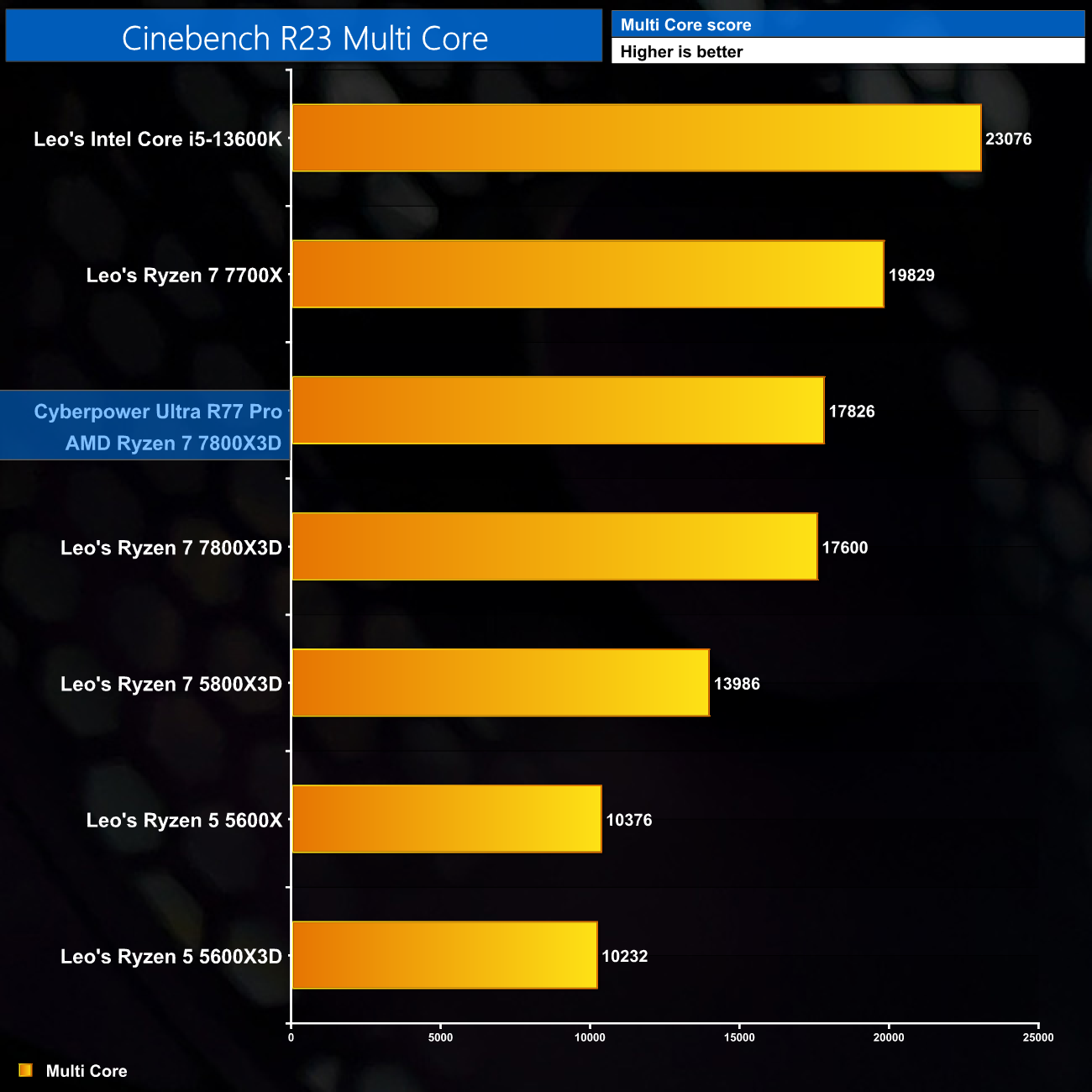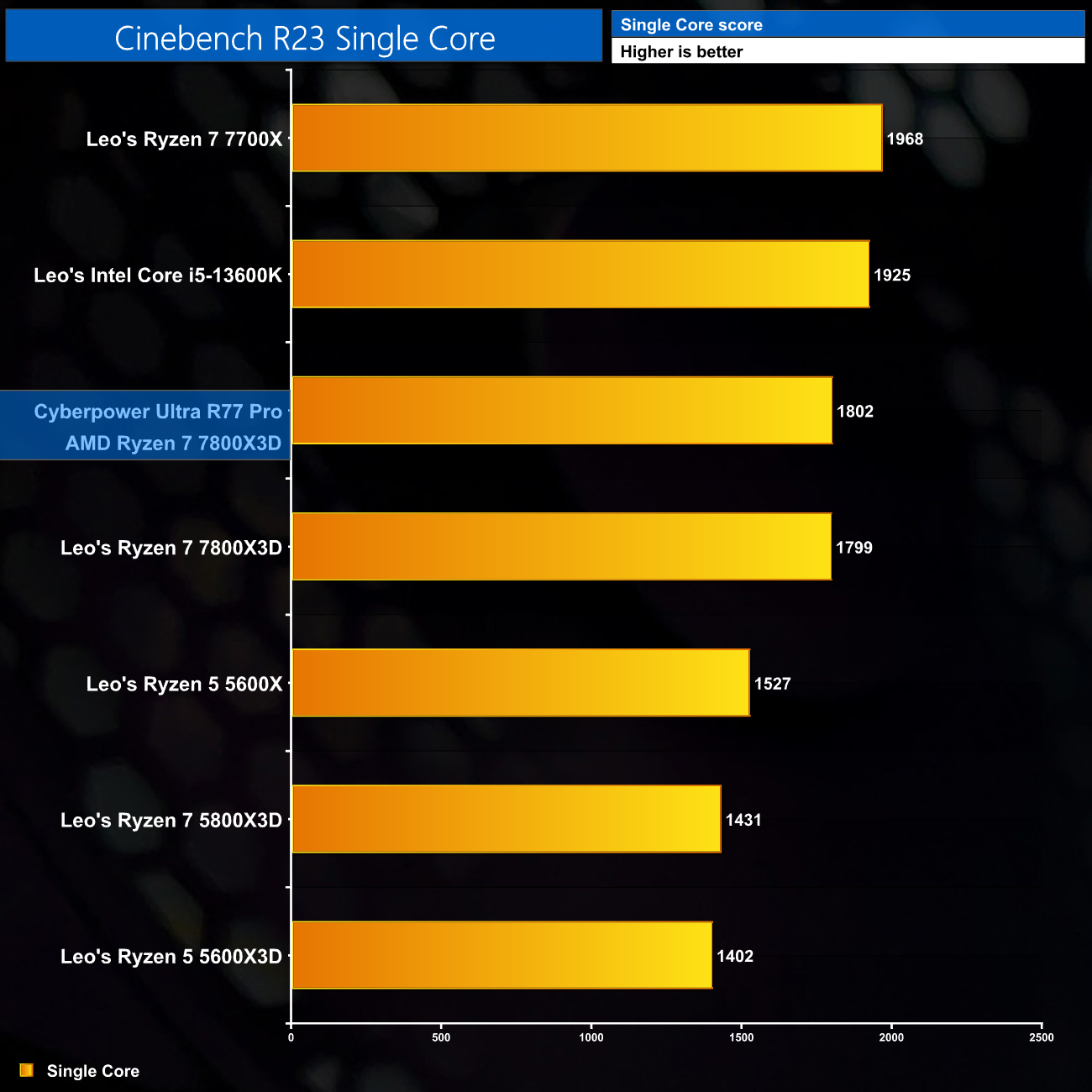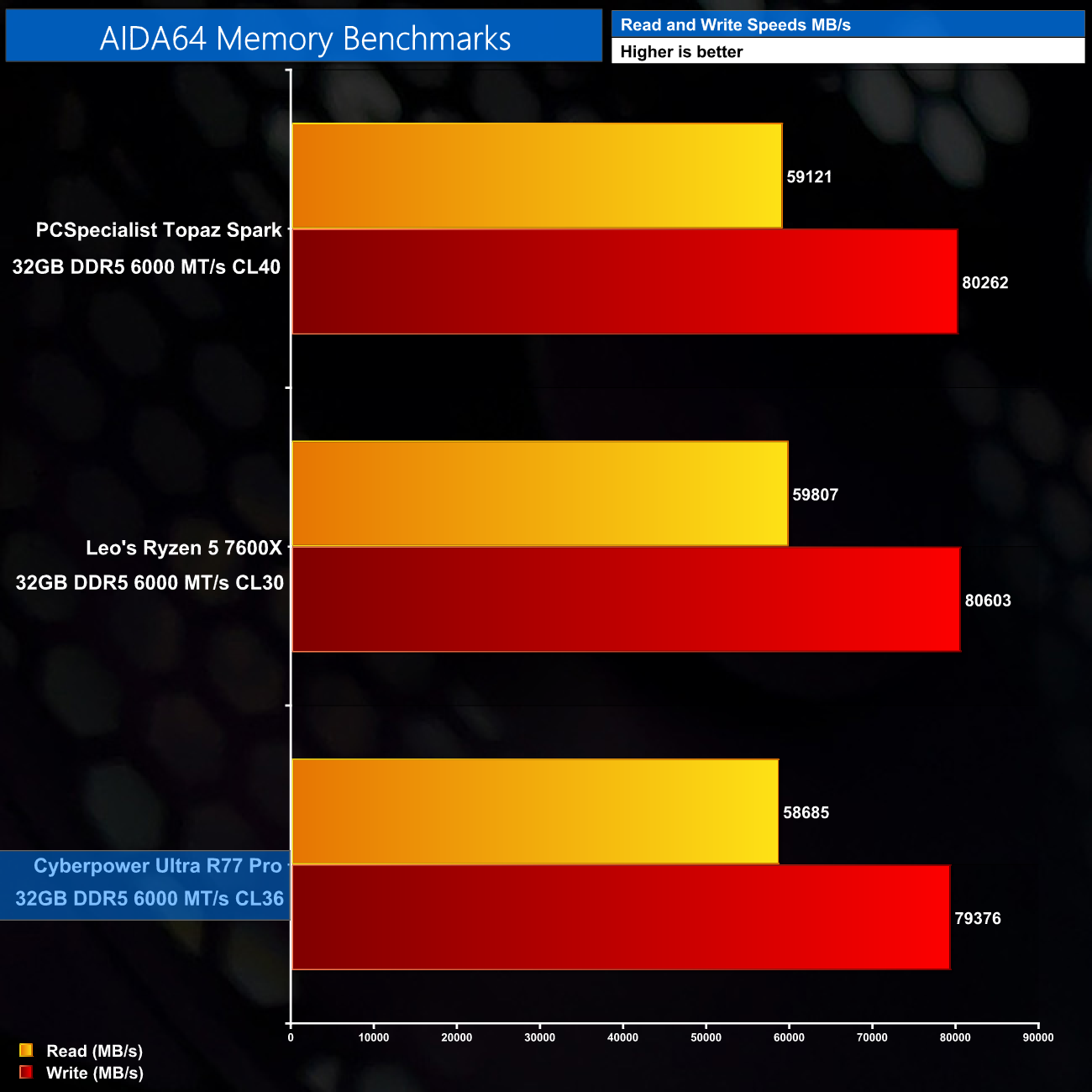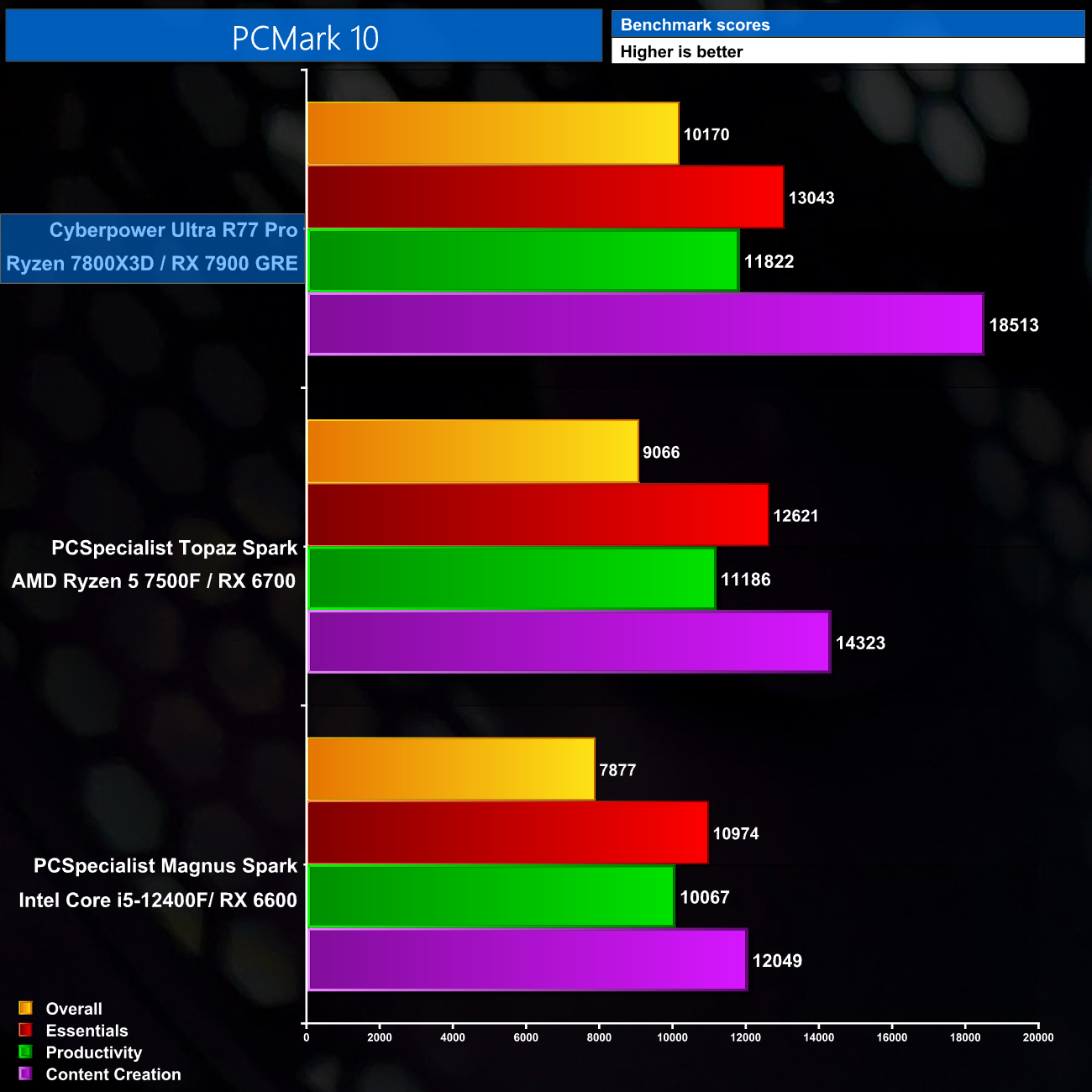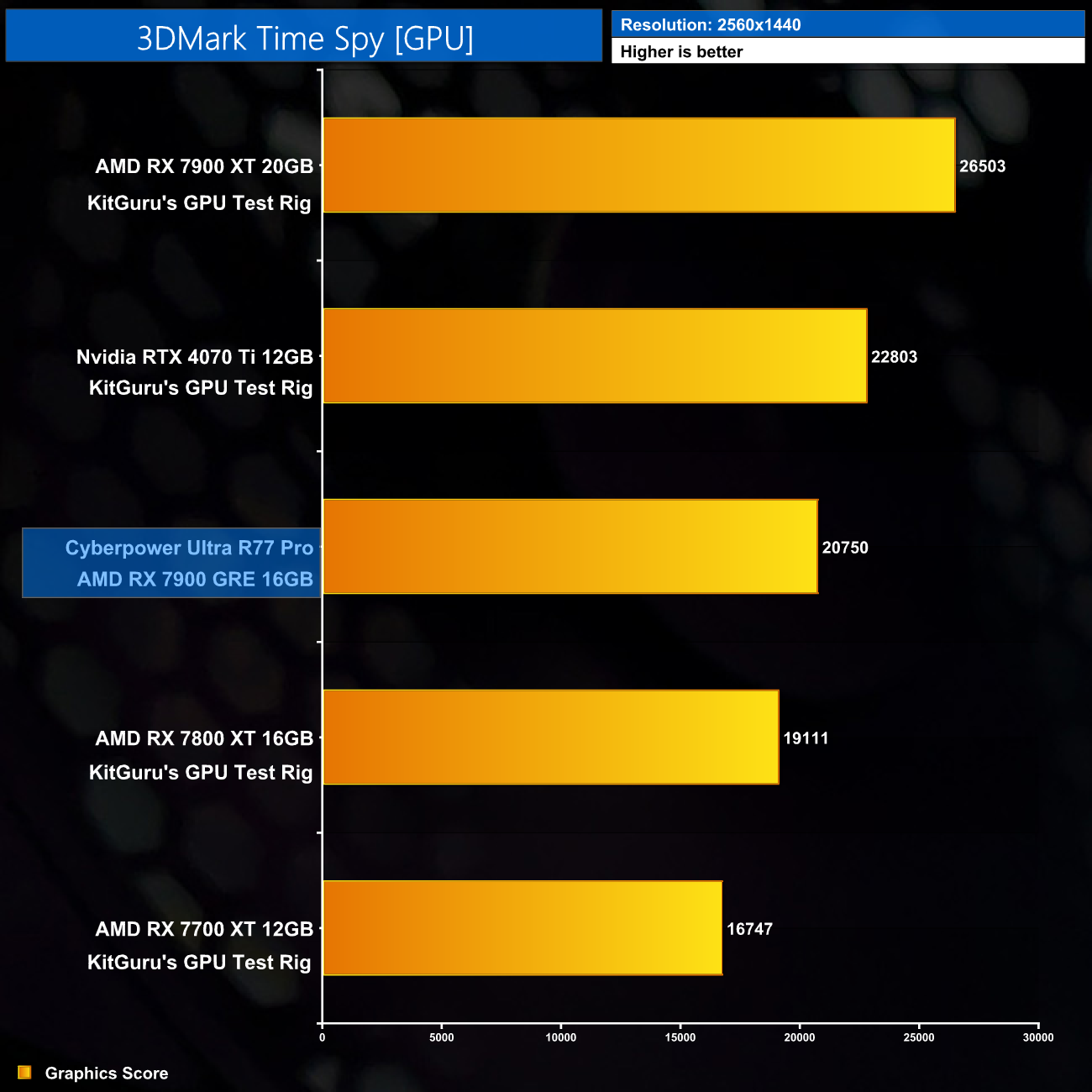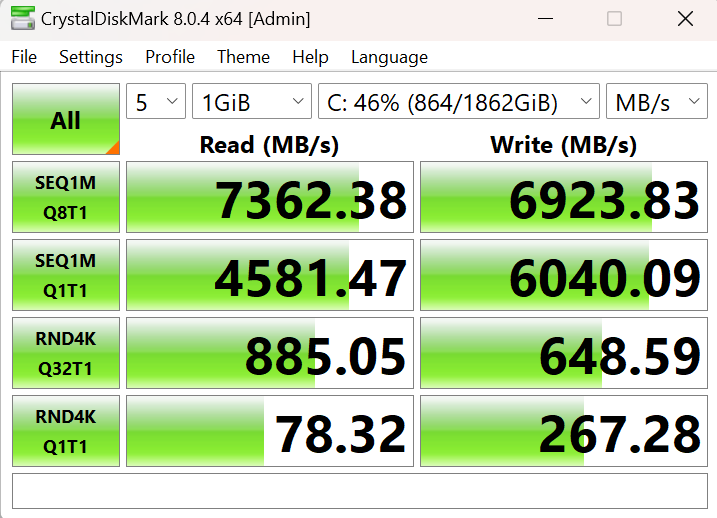Starting our benchmarks with Cinebench R23, the 7800X3D in the Ultra R77 Pro is marginally outperforming the 7800X3D that Leo tested for his review. Its score of just below 17900 points does make it a touch slower than the 7700X due to the lower clock speed, but you can see the generational leap compared to the 5800X3D.
Single core performance is about as expected. The 7800X3D has lower boost clock so can't match the i5-13600K or Ryzen 7700X, but provides a big boost to performance versus Zen 3.
Memory benchmarks follow a similar trend. All three kits shown are DDR5 6000 MT/s memory modules and all produced very similar performance, with reads around 59000 MB/s and writes at or around 80000 MB/s.
We don't put too much stock onto the PCMark 10 scores but it's a good way to compare the Ultra R77 Pro against your own PC at home. Its content creation score is particularly impressive, hitting over 18K points.
As for GPU performance, in 3DMark Time Spy we can see that the 7900 GRE slots between the 7800 XT and 7900 XT, though it is much closer to the former than it is to the latter. It's also about 2000 points behind the RTX 4070 Ti.
Lastly, the 2TB Kingston Fury Renegade delivers performance about where we'd expect for a premium Gen4 drive. Reads are just over 7.3 GB/s, while writes are a touch below 7 GB/s.
 KitGuru KitGuru.net – Tech News | Hardware News | Hardware Reviews | IOS | Mobile | Gaming | Graphics Cards
KitGuru KitGuru.net – Tech News | Hardware News | Hardware Reviews | IOS | Mobile | Gaming | Graphics Cards


